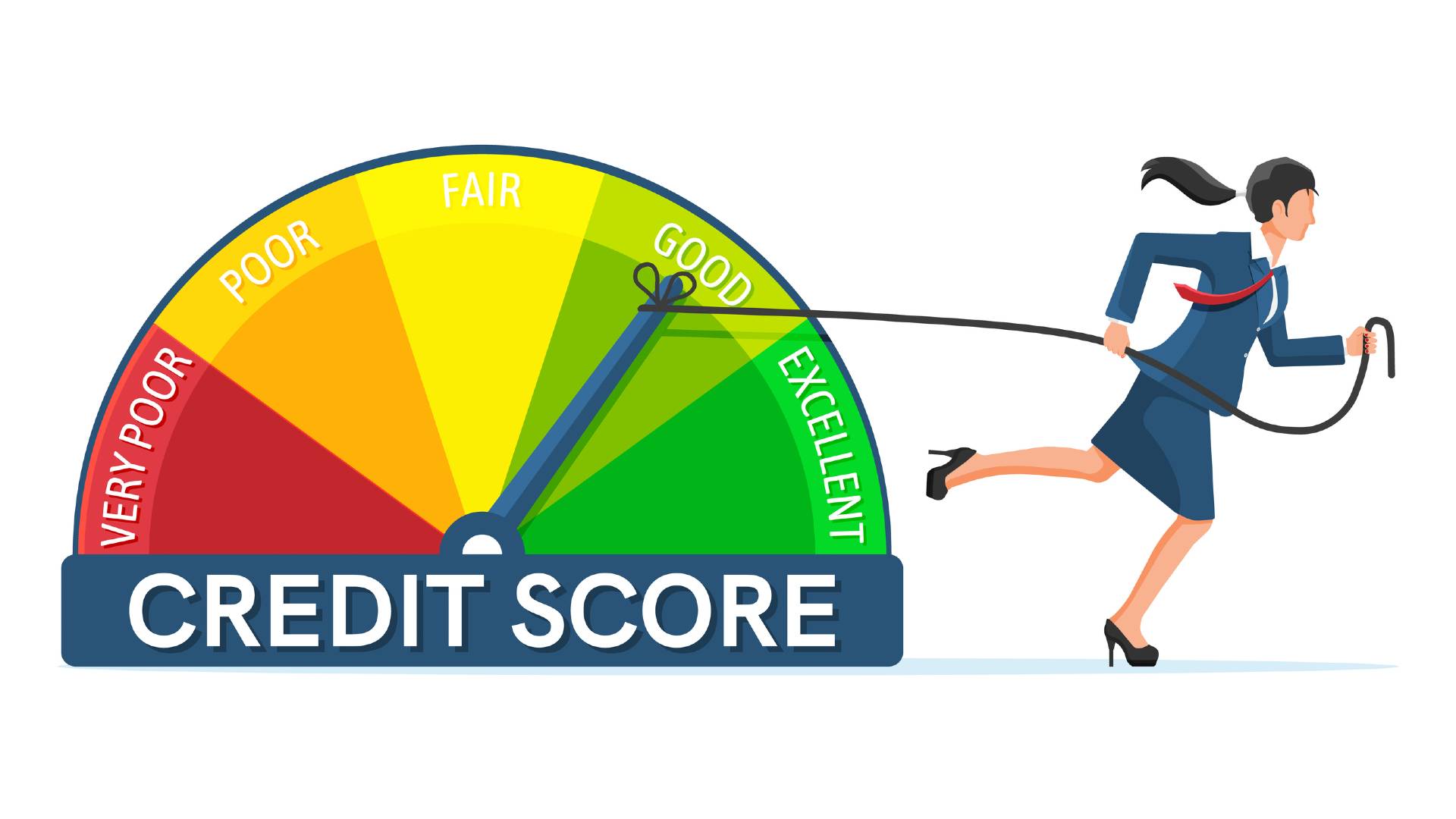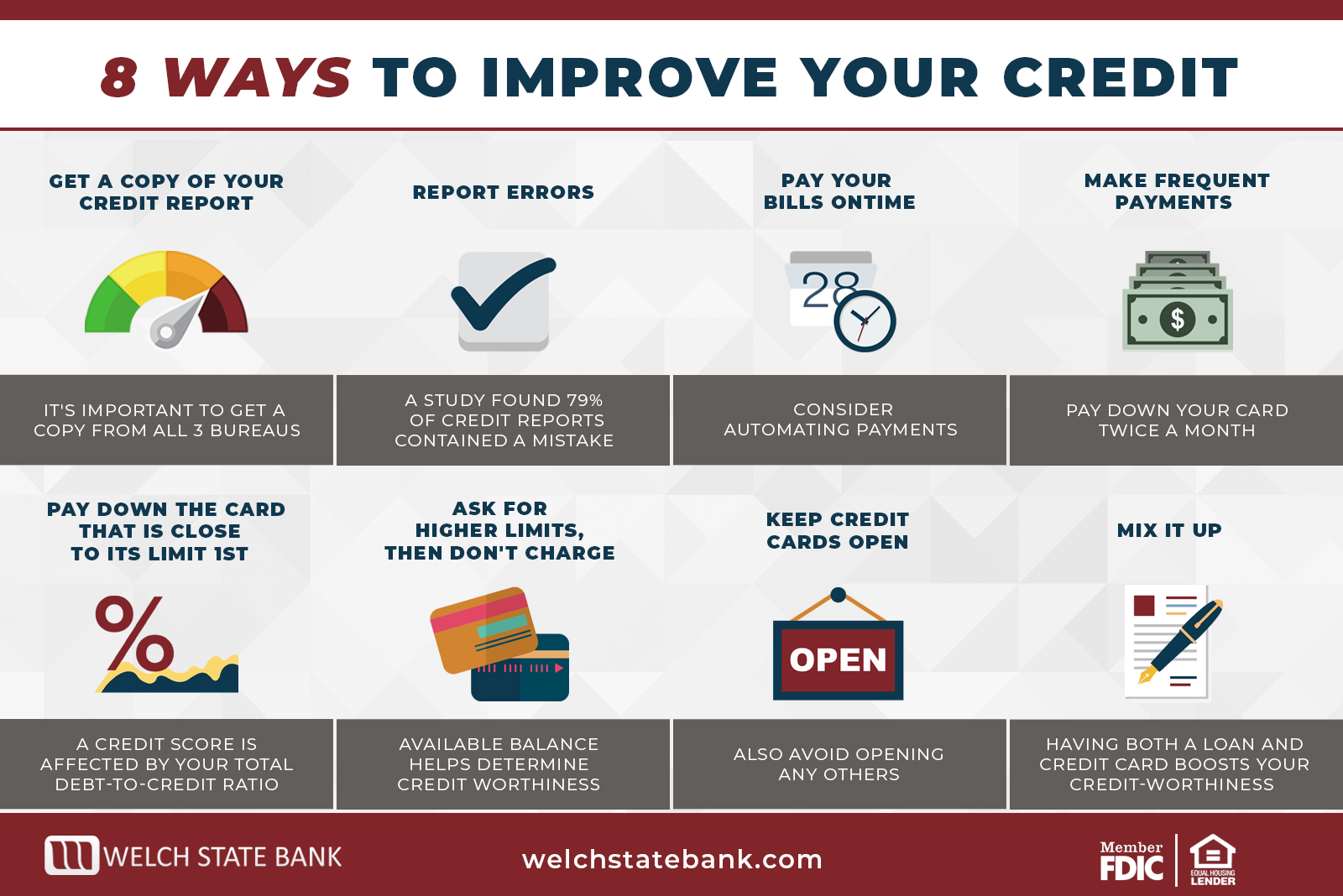Boost Credit Score by paying bills on time and reducing credit card balances. A good credit score is crucial for obtaining loans and better interest rates, and can be achieved through responsible financial habits.
A credit score is a numerical representation of your creditworthiness, and it plays a vital role in various aspects of your financial life. Lenders, landlords, and even potential employers use it to evaluate your creditworthiness and determine whether you are a responsible borrower or a credit risk.
Therefore, it is important to have a good credit score. However, if your credit score is not in the best shape, there are steps you can take to boost it. By implementing certain strategies such as paying bills on time, reducing credit card balances, and monitoring your credit report for errors, you can improve your credit score over time. We will explore some effective ways to boost your credit score and enhance your financial well-being.

Credit: finlocker.com
Understanding Credit Scores
Boosting your credit score is essential for financial success. By understanding credit scores and implementing effective strategies, you can improve your score and secure better loan terms, increased credit limits, and lower interest rates.
What Is A Credit Score?
A credit score is a three-digit number that reflects your creditworthiness and financial health. It is a tool used by lenders to assess your risk as a borrower. In simple terms, a credit score serves as a summary of your credit history and helps lenders decide whether to approve your applications for credit cards, loans, or mortgages.
A credit score typically ranges from 300 to 850, with a higher score indicating a more favorable credit profile. A good credit score is essential, as it can open doors to better borrowing opportunities, lower interest rates, and increased financial freedom.
Factors That Affect Credit Scores
Several factors influence your credit score. Understanding these factors can help you make informed decisions to improve your score. Here are some key factors that affect your credit score:
1. Payment history: This is the most vital factor that influences your credit score. It considers whether you have made your payments on time and if you have any late or missed payments.
2. Credit utilization: This refers to the percentage of your available credit that you are using. It’s important to keep your credit card balances low to demonstrate responsible credit management.
3. Length of credit history: The length of time you have had credit accounts is a factor that shows your creditworthiness. Generally, a longer credit history indicates stability and responsible credit behavior.
4. Credit mix: Lenders like to see a mix of different credit types, such as credit cards, car loans, and mortgages. Having a variety of credit accounts can boost your credit score.
5. New credit applications: When you apply for new credit, it can negatively impact your credit score. Lenders may see multiple applications within a short period as a sign of financial instability.
6. Negative marks: Bankruptcies, foreclosures, collections, and liens can significantly damage your credit score. It’s crucial to avoid these negative marks on your credit report.
By understanding these factors and taking steps to improve each aspect, you can work towards boosting your credit score over time. Remember that improving your credit score is a gradual process, but the long-term benefits are worth the effort.
:max_bytes(150000):strip_icc()/things-that-boost-credit-score-8ee7c4392e764cceb0deae74b741e000.gif)
Credit: www.thebalancemoney.com
Strategies For Boosting Your Credit Score
Having a good credit score is crucial for a healthy financial life. It can impact your ability to secure loans, get favorable interest rates, and even qualify for certain rentals. If you are looking to boost your credit score, there are several strategies you can implement to improve your creditworthiness and increase your chances of financial success. In this article, we will explore three key strategies for boosting your credit score.
Check Your Credit Report For Errors
One of the first steps in boosting your credit score is to carefully review your credit report for any inaccuracies. Mistakes in your credit report can negatively impact your score, so it’s essential to identify and correct them. You can obtain a free copy of your credit report from the three major credit bureaus, Equifax, Experian, and TransUnion.
To check for errors, examine each section of your report, including personal information, accounts, and payment history. Look for any inconsistencies, such as incorrect balances, missed payments that you have made, or accounts that you don’t recognize. If you find any errors, you should dispute them with the credit bureaus and provide any supporting documentation to rectify the mistake.
Pay Your Bills On Time
An essential factor in determining your credit score is your payment history. Payment history makes up a significant portion of your credit score, so it is vital to make all your bill payments on time. Late payments, even by a few days, can lower your score and stay on your credit report for years.
To ensure you never miss a payment, consider setting up automatic payments or reminders. This way, you can avoid late fees and protect your credit score from unnecessary damage. If you are struggling to keep up with your payments, reach out to your creditors to explore options such as payment plans or renegotiating terms. Prioritizing timely bill payments will gradually boost your credit score over time.
Reduce Your Credit Utilization
Credit utilization refers to the percentage of your available credit that you are using. High credit utilization can negatively impact your credit score, as it suggests you are relying heavily on borrowed funds. To boost your credit score, aim to keep your credit utilization below 30%.
To reduce your credit utilization, you can focus on two main strategies. First, you can pay down your existing balances to decrease the overall amount you owe. Second, you can request a credit limit increase from your credit card issuers, although this step requires careful consideration to prevent overspending.
By implementing these strategies and staying proactive in managing your credit, you can gradually boost your credit score, improving your financial standing and opening doors to better opportunities in the future.
Long-term Habits For Maintaining A Healthy Credit Score
Building a healthy credit score takes time and consistent effort. By adopting long-term habits that help you manage your credit responsibly, you can take control of your financial future. Here are three key practices to help you maintain a healthy credit score:
Keep Credit Card Balances Low
A significant factor in determining your credit score is the amount of credit card debt you carry. To maintain a healthy credit score, it’s important to keep your credit card balances as low as possible. Aim to use no more than 30% of your available credit, as exceeding this threshold can negatively impact your credit score.
For example, if your credit card’s total limit is $5,000, try to keep your balance below $1,500. Keeping your credit utilization low shows lenders that you have control over your finances and are less likely to default on your payments.
Avoid Opening Unnecessary Credit Accounts
While it may be tempting to open multiple credit accounts, doing so can negatively impact your credit score. Each time you apply for new credit, it results in a hard inquiry on your credit report. Too many hard inquiries in a short period can signal to lenders that you are a higher credit risk.
Instead, focus on maintaining a few well-managed credit accounts. This allows you to demonstrate a history of responsible credit use and build a positive credit profile. Avoid opening unnecessary credit accounts, as they can contribute to a higher risk of overspending or accumulating debt that you may struggle to repay.
Monitor Your Credit Regularly
Regularly monitoring your credit is essential for maintaining a healthy credit score. By reviewing your credit report frequently, you can catch any errors or fraudulent activities that may be affecting your creditworthiness.
Check your credit report at least once a year or use a credit monitoring service to stay updated on any changes. Look for incorrect information, such as late payments or accounts you didn’t open. Disputing any inaccuracies can help improve your credit score and prevent any future negative impacts.
Additionally, keeping an eye on your credit activity allows you to spot any changes early on, allowing you to address them promptly. This can be particularly helpful if you’re planning to apply for credit in the near future.
By keeping your credit card balances low, refraining from opening unnecessary credit accounts, and monitoring your credit regularly, you can build and maintain a healthy credit score over time. These long-term habits demonstrate responsible credit management and can improve your chances of qualifying for favorable loans or credit terms in the future.

Credit: www.welchstatebank.com
FAQ On How To Boost Credit Score
How Can I Improve My Credit Score Quickly?
To improve your credit score quickly, start by making all your payments on time, paying off any outstanding debts, keeping your credit utilization ratio low, and checking your credit report for errors. Additionally, avoid opening new credit accounts and only apply for credit when necessary.
Are There Any Shortcuts To Boost My Credit Score?
Although there are no shortcuts to instantly boost your credit score, you can take certain actions to improve it over time. Focus on practicing good credit habits, such as paying bills on time, reducing your debt, and maintaining a low credit utilization ratio.
These steps will gradually increase your creditworthiness.
How Long Does It Take To Raise A Credit Score?
The time it takes to raise your credit score depends on various factors, such as your current credit history and the actions you take. Generally, it can take a few months to see significant improvements. However, for more significant changes, it may take up to a year or more of consistent positive credit behavior.
Can Closing An Old Credit Card Hurt My Credit Score?
Closing an old credit card can potentially lower your credit score. This is because it may decrease your overall credit limit and affect your credit utilization ratio. If the card has no annual fee, it may be beneficial to keep it open, even if you don’t use it frequently, as it contributes to the length of your credit history.
Conclusion
Improving your credit score is crucial for your financial well-being. By following these tips and taking the necessary steps, you can boost your credit score and open up opportunities for better interest rates, loans, and more. Remember to consistently monitor your credit report, make timely payments, keep credit card balances low, and diversify your credit mix.
With time and patience, you’ll see positive changes and a stronger credit score. Start your journey to financial success today!
